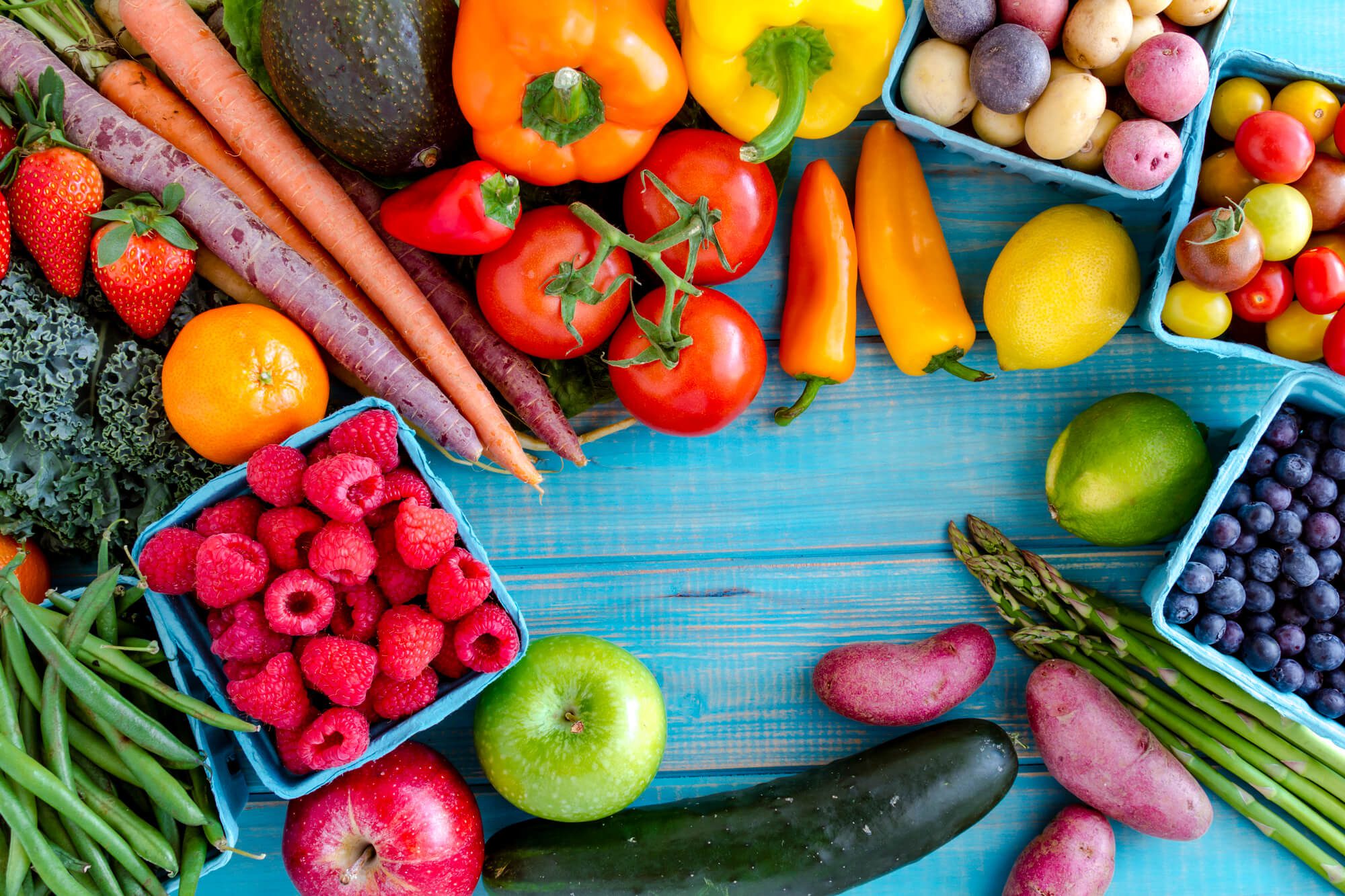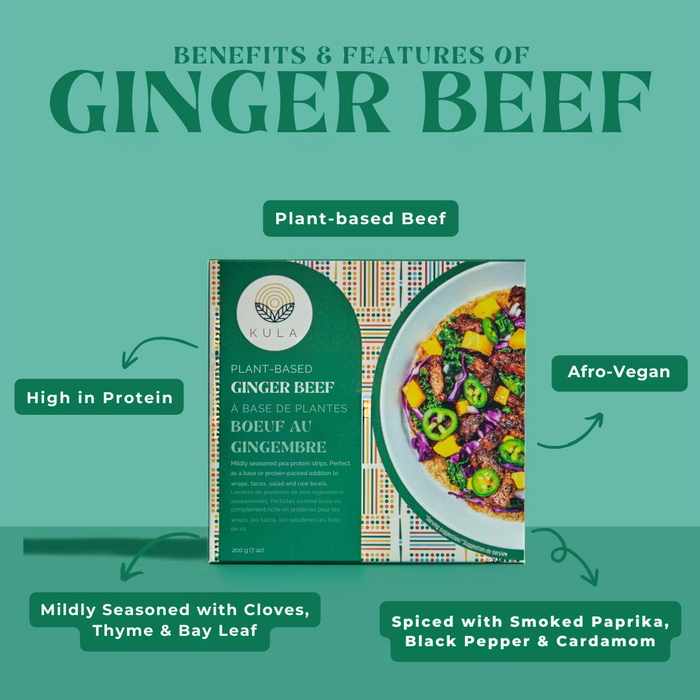Everything About Healthy And Balanced Food: Advantages of Enjoying Plant Based Choices
The conversation bordering plant-based diet regimens has actually obtained significant interest in the last few years. Numerous individuals are exploring the potential health advantages, dietary benefits, and ecological influences connected with these nutritional choices. As people end up being more familiar with their food's impact on health and sustainability, concerns arise concerning the functionalities of adopting such a lifestyle. What certain modifications can one anticipate, and just how might these options reshape not just personal health yet likewise the planet's future?
Recognizing Plant-Based Diet Regimens
Although many individuals connect plant-based diets primarily with vegetarianism or veganism, these diets can incorporate a variety of eating patterns that prioritize entire, minimally processed plant foods. Such diet plans typically include fruits, veggies, whole grains, beans, nuts, and seeds, while getting rid of or limiting pet products. This flexibility allows individuals to customize their nutritional options according to individual preferences and dietary needs. Some might embrace a mostly plant-based diet regimen while still occasionally consuming meat or dairy products, typically described as a flexitarian strategy. The focus remains on integrating even more plant foods, which can lead to a diverse variety of dishes and tastes. Understanding these various interpretations of plant-based consuming is important for appreciating its availability and appeal in modern food culture.
Health Advantages of Plant-Based Foods
The wellness benefits of plant-based foods are significant, providing a nutrient thickness benefit that supports overall well-being. Research study suggests that these foods can enhance heart health and play a necessary duty in effective weight administration. By integrating extra plant-based alternatives, people might enhance their dietary selections and advertise lasting health.
Nutrient Density Advantage
Nutrient density plays an essential role in the health and wellness benefits of plant-based foods, making them an engaging selection for those seeking a balanced diet. Plant-based foods, such as fruits, veggies, beans, nuts, and whole grains, are typically abundant in necessary vitamins, minerals, and anti-oxidants while being reduced in calories. This high nutrient thickness permits individuals to consume fewer calories while still meeting their nutritional demands. In addition, these foods are packed with nutritional fiber, promoting gastrointestinal health and assisting in weight administration. By integrating nutrient-dense plant-based options, customers can improve their overall health and wellness, support their immune systems, and decrease the threat of chronic diseases. Eventually, the nutrient density of plant-based foods emphasizes their value in a health-conscious lifestyle.
Heart Health And Wellness Improvement

Weight Administration Assistance
Along with advertising heart health and wellness, a plant-based diet can considerably assist in weight monitoring. This dietary strategy highlights whole foods such as fruits, vegetables, beans, nuts, and whole grains, which are generally reduced in calories and higher in fiber contrasted to animal-based products. The high fiber web content helps raise satiation, decreasing total calorie intake. In addition, plant-based diet plans are typically rich in crucial nutrients while low in unhealthy fats, making it less complicated to preserve a healthy weight. BBQ Sauces. Research suggests that people that embrace a plant-based lifestyle have a tendency to have lower body mass indexes (BMIs) and experience even more successful fat burning contrasted to those who eat meat-heavy diets. As a result, welcoming plant-based alternatives is a calculated choice for effective weight administration
Nutritional Worth of Plant-Based Ingredients
Plant-based components are abundant in important nutrients, using a diverse variety of vitamins, minerals, and antioxidants that add to general wellness. A comparison of healthy protein sources reveals that while animal products are typically watched as superior, many plant-based alternatives offer appropriate protein and other helpful compounds. Recognizing the nutritional value of these ingredients can help people make notified dietary choices.
Important Nutrients in Plants
Nutrient-rich components located in plants supply a varied range of vital vitamins and minerals that contribute significantly to overall wellness. These active ingredients are abundant in vitamins A, C, and K, which sustain immune function, vision, and blood clot, specifically. Additionally, plants offer important minerals such as calcium, magnesium, and potassium, crucial for heart health, muscular tissue feature, and bone strength. The visibility of fiber in plant-based foods help digestion and promotes a healthy and balanced digestive tract microbiome. Antioxidants, located generously in vegetables and fruits, assistance combat oxidative stress and anxiety and decrease inflammation. In addition, numerous plant foods are reduced in calories yet high in nutrients, making them an exceptional option for those seeking to keep a healthy weight while making certain suitable nutrient consumption.
Comparing Protein Resources
Healthy protein sources differ significantly in their dietary accounts, with plant-based components using distinct advantages. Unlike animal healthy proteins, which frequently contain saturated fats and cholesterol, plant proteins tend to be lower in these unhealthy parts. Legumes, nuts, seeds, and entire grains are rich in vital amino acids, fiber, vitamins, here and minerals. For example, view website lentils offer high protein web content alongside considerable iron and folate, while quinoa is a full healthy protein, offering all nine essential amino acids. In addition, plant-based healthy proteins are often come with by anti-oxidants and phytochemicals that support overall health and wellness. The shift to plant-based healthy protein sources not just enhances nutritional consumption yet likewise lines up with sustainable dietary techniques, decreasing ecological impact and promoting long-term health and wellness advantages.
Environmental Influence of Plant-Based Eating
As recognition of environment change grows, several people are checking out lasting dietary options that can greatly lessen their environmental impact. Plant-based consuming has arised as a significant factor to decreasing greenhouse gas exhausts, which are mainly connected with livestock production. The growing of fruits, vegetables, grains, and vegetables typically requires less sources, such as water and land, contrasted to pet farming. Additionally, plant-based diet plans can lead to lowered logging, as less land is needed for grazing livestock or growing animal feed. By shifting towards plant-based options, consumers can sustain biodiversity and promote much healthier ecological communities. In general, embracing plant-based consuming not just advantages individual wellness but likewise stands for a crucial action towards environmental sustainability and preservation initiatives.
Conquering Common Misconceptions
While several individuals identify the advantages of a plant-based diet regimen, numerous misconceptions typically prevent them from fully embracing this lifestyle. A common idea is that plant-based diet regimens lack sufficient protein; however, numerous plant sources, such as vegetables, nuts, and tofu, supply enough healthy protein. In addition, some think that this diet plan is costly, when in reality, staples like beans, rice, and seasonal vegetables can be fairly inexpensive. One more misunderstanding is that plant-based consuming is extremely limiting, whereas it in fact supplies a varied range of tastes and foods. Several stress that a plant-based diet plan may lead to shortages, yet with proper planning, people can obtain all essential nutrients, including minerals and vitamins, while enjoying a vast range of scrumptious meals. Vast Tips for Transitioning to a Plant-Based Lifestyle
Making the shift to a plant-based way of living can be an enhancing experience, though it often needs some assistance to navigate the first modifications. First, people are encouraged to start progressively, integrating more fruits, vegetables, vegetables, and whole grains right into their meals while minimizing meat and milk consumption. Dish preparation is vital; preparing an once a week menu can help alleviate the modification and protect against last-minute undesirable options. Discovering cooking techniques and new dishes can additionally keep and boost the experience excitement about plant-based consuming. Additionally, signing up with support system or areas can provide motivation and share useful pointers. Ultimately, remaining informed concerning nourishment warranties well balanced dishes, protecting against deficiencies while promoting a healthy, gratifying plant-based lifestyle.
Delicious Plant-Based Dish Concepts
Exploring tasty plant-based dish concepts can inspire individuals to embrace a more nutritious diet. One preferred alternative is a hearty quinoa salad, including cherry tomatoes, cucumber, and a spicy lemon-tahini dressing. An additional fave is a full-flavored lentil stew, loaded with carrots, celery, and great smelling natural herbs, perfect for a calming supper. For morning meal, overnight oats made with almond milk, chia seeds, and covered with fresh berries give a nutritious begin to the day. Furthermore, a vibrant vegetable stir-fry with tofu and a range of vivid veggies can be a fast yet pleasing meal. Velvety avocado salute on whole-grain bread, sprayed with seeds and spices, provides a basic additional hints yet delicious treat. These meals showcase the range and richness of plant-based eating.

Frequently Asked Inquiries
Can a Plant-Based Diet Regimen Offer Enough Healthy Protein?
The inquiry of whether a plant-based diet regimen can give adequate protein is common. Various sources, consisting of beans, nuts, seeds, and entire grains, can satisfy protein requires efficiently, supporting a balanced and healthy diet plan for people.
Are Plant-Based Diet Regimens Suitable for Kid?
The suitability of plant-based diets for kids depends on careful preparation. Ample nutrients need to be assured, including proteins, minerals, and vitamins. With appropriate guidance, such diet plans can sustain healthy and balanced growth and growth in children.
Exactly how Do I Dine Out on a Plant-Based Diet plan?
Eating in restaurants on a plant-based diet regimen includes looking for dining establishments with diverse food selections, requesting alterations, and exploring vegan-friendly choices. Preparation ahead and connecting dietary choices can boost the dining experience while preserving dietary choices.
What Prevail Irritants in Plant-Based Foods?
Common allergens in plant-based foods consist of soy, gluten, nuts, and seeds - Plant Based Beef. People following a plant-based diet must recognize these irritants and review labels meticulously to avoid damaging reactions and guarantee risk-free consumption
Can Plant-Based Diets Help With Weight-loss?
Study indicates that adopting a plant-based diet might promote weight reduction because of its normally reduced calorie thickness and higher fiber material. This combination can improve satiety, assisting individuals manage their caloric intake properly. Lots of individuals link plant-based diet regimens mostly with vegetarianism or veganism, these diet regimens can include a large variety of eating patterns that prioritize whole, minimally refined plant foods. Nutrient density plays an important function in the health advantages of plant-based foods, making them an engaging selection for those looking for a balanced diet plan. Plant-based diet regimens have actually been shown to markedly boost heart health and wellness, as they frequently have aspects that sustain cardio feature. In enhancement to promoting heart health, a plant-based diet plan can substantially aid in weight monitoring. An usual idea is that plant-based diets do not have sufficient healthy protein; nonetheless, many plant resources, such as beans, nuts, and tofu, provide sufficient healthy protein.